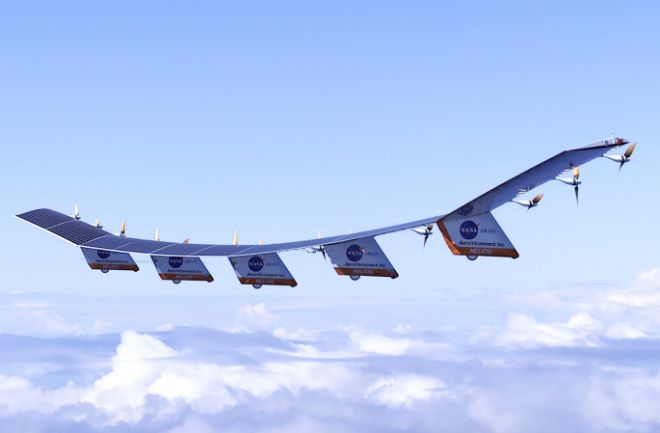The Flight of Helios

Credit & Copyright: Carla Thomas, courtesy
DFRC,
NASA
Explanation:
An example of solar-powered flight, NASA's Helios
aircraft flew almost
one hundred years after the Wright brothers'
historic flight on December 17, 1903.
Pictured here at 10,000 feet in
in skies northwest of Kauai, Hawaii in August 2001,
the remotely piloted Helios is traveling at about 25 miles per hour.
Essentially an ultralight flying wing
with 14
electric
motors, the aircraft was built by AeroVironment Inc.
Covered with solar cells, Helios' impressive 247 foot wide wing
exceeds the wing span and even overall length of a
Boeing 747
jet airliner.
Climbing during daylight hours,
the prototype aircraft
ultimately
reached an altitude just short of 100,000 feet,
breaking records for non-rocket
powered flight.
Helios was intended as a technology demonstrator, but
in the extremely thin air 100,000 feet above Earth's surface, the flight
of Helios also
approached
conditions for
winged
flight in the
atmosphere
of Mars.
Authors & editors:
Robert Nemiroff
(MTU) &
Jerry Bonnell
(USRA)
NASA Web Site Statements, Warnings,
and Disclaimers
NASA Official: Jay Norris.
Specific
rights apply.
A service of:
LHEA at
NASA /
GSFC
& Michigan Tech. U.

